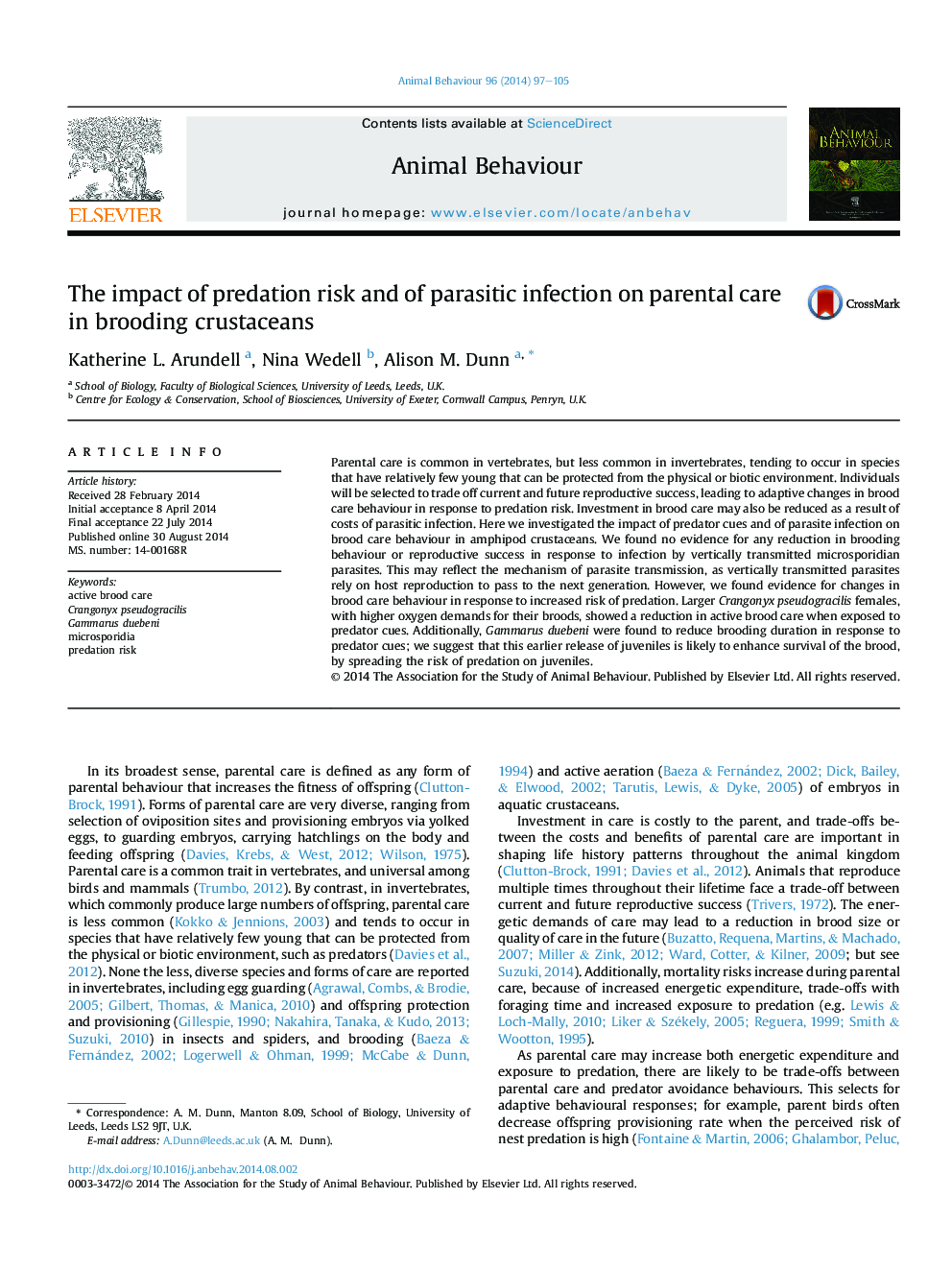| کد مقاله | کد نشریه | سال انتشار | مقاله انگلیسی | نسخه تمام متن |
|---|---|---|---|---|
| 2416357 | 1552232 | 2014 | 9 صفحه PDF | دانلود رایگان |
• We report the first evidence that predation risk influences brood care in amphipods.
• Larger C. pseudogracilis females reduced brood care in response to predator cues.
• Predator cues caused a trend for a reduction in brooding duration in G. duebeni.
• This plasticity allows trade-offs between current and future reproductive success.
Parental care is common in vertebrates, but less common in invertebrates, tending to occur in species that have relatively few young that can be protected from the physical or biotic environment. Individuals will be selected to trade off current and future reproductive success, leading to adaptive changes in brood care behaviour in response to predation risk. Investment in brood care may also be reduced as a result of costs of parasitic infection. Here we investigated the impact of predator cues and of parasite infection on brood care behaviour in amphipod crustaceans. We found no evidence for any reduction in brooding behaviour or reproductive success in response to infection by vertically transmitted microsporidian parasites. This may reflect the mechanism of parasite transmission, as vertically transmitted parasites rely on host reproduction to pass to the next generation. However, we found evidence for changes in brood care behaviour in response to increased risk of predation. Larger Crangonyx pseudogracilis females, with higher oxygen demands for their broods, showed a reduction in active brood care when exposed to predator cues. Additionally, Gammarus duebeni were found to reduce brooding duration in response to predator cues; we suggest that this earlier release of juveniles is likely to enhance survival of the brood, by spreading the risk of predation on juveniles.
Journal: Animal Behaviour - Volume 96, October 2014, Pages 97–105
